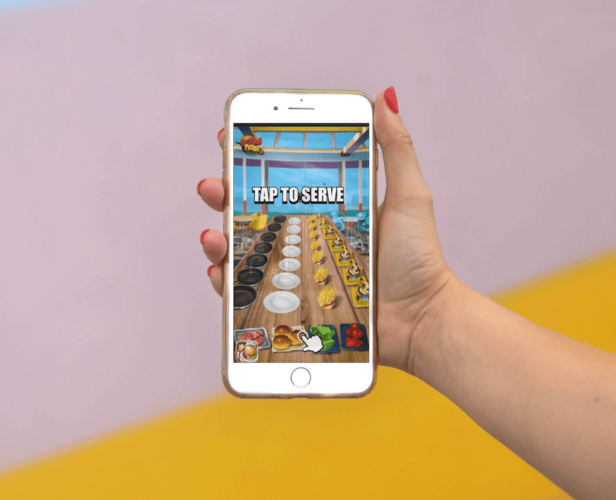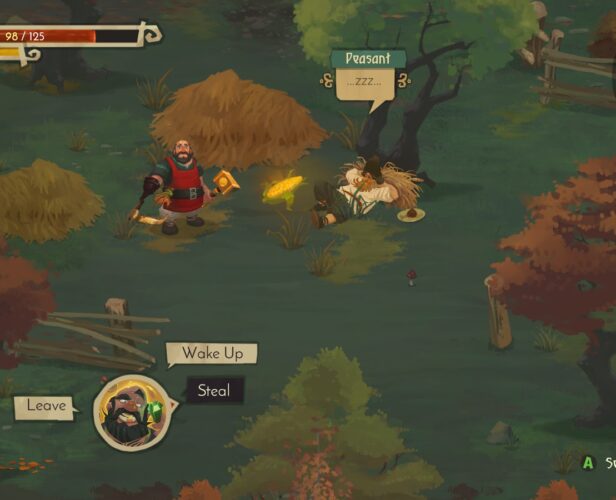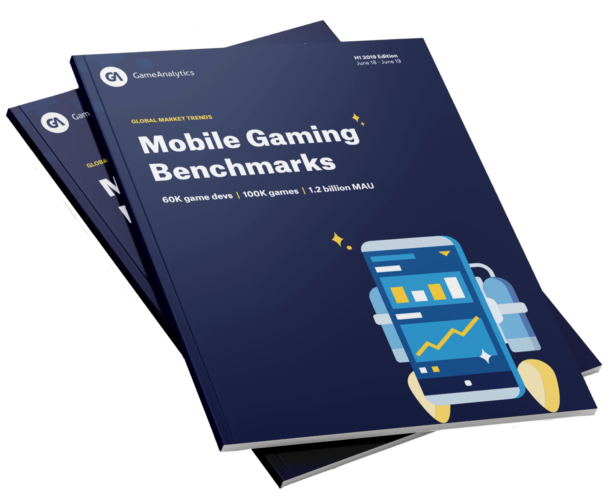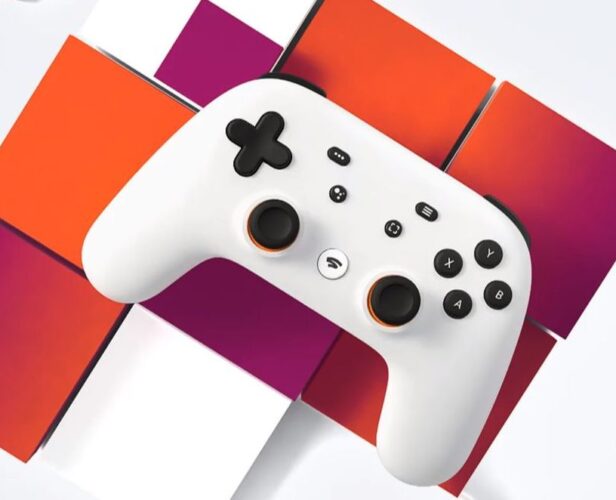Category
Guides
#Ads & Monetization
Getting started with mobile ad mediation – a how-to guide
What’s ad mediation? And why should you care about it? To find out, we asked our friends at TopOn, a mediation platform for global monetization, to give us the lowdown. Here’s what they said… Nowadays, advertising monetization is one of the most popular profit models for mobile game and app developers. According to IDC the global mobile game, ad revenue in 2019 was nearly $20 billion. And it’s expected to reach $45.2 billion by 2023, which is an annual growth rate of about 26% (this is according to our Mobile Game Advertising and Monetization Report for H1 2020). But despite this, most developers are only scratching the surface when it comes to getting the most from mobile advertising. They’re still mainly relying on automatic functions to improve their in-game ad revenue, rather than trying out more advanced techniques (which can...
#Ads & Monetization
A Game Developers’ Guide to Playable Ads
Playable ads have become more and more popular in the last couple of years. According to eMarketer, 28% of ad agency professionals in the US think playable ads are the most effective format out there. So what makes a great playable? And what steps should you take when making your own? We look at that, and more, in this blog. But before we dig in, let’s go over the basics. Playable ads – the basics Playable ads are exactly what they sound like – adverts you can play. Similar to free demos, they let you try out an app or game before you commit to downloading it, rather than just watching a video or looking at an image. What makes a great playable ad Playable ads are generally only a minute or so long. And if you’ve done any research...
#Game Design
So you want to make an RPG game? Here’s what you should know
The RPG genre has changed dramatically over the past few years. Going from pen and paper to tabletops, from desktop to mobile, the genre barely looks the same as it did all those years ago. Despite this, there are a few elements that hold true in them all. And in this post, my goal is to highlight what those elements are, how they work, and what you need to remember when making a hit RPG game. There are four main sections you can check out, so feel free to skip to something in specific: Audience Get your pacing right Smaller experiences Customization Let’s get started. So, who the hell plays RPG games? As you’ll probably know, audiences don’t just slip into one neat demographic. There are a ton of reasons why someone would play your game. If you look at...
#Data & Analytics
Mobile Gaming Industry Analysis for H1 2019
100k titles. 1.2 billion+ MAU. A whole heck of a lot of data. Let's look at the state of the mobile games industry.
#Game Design
4 Steps When Using Music To Support Game Narrative
Psst… This blog belongs to a series of blog posts, all about music in gaming. And in case you missed it, you can find our last one here: Using Music As A Core Mechanic. If I asked you to hum the theme tune to a game right now, which one would you pick? Super Mario Bros? Zelda? Even casual gamers could probably come up with something (probably Tetris). My point is that you could do it – that’s because music in games plays an important role in creating atmosphere and supporting the narrative. And mobile games are no different. A good theme tune can improve players’ experiences by setting the mood and making it memorable. Let’s have a look at a couple of games which are really nailing the music. Oxenfree is a great example of well-executed music in gaming....
#Game Design
A Voodoo Guide To Game Design: Keep Things Simple
At Voodoo, we firmly believe that simple is best when it comes to designing hyper-casual games. So in this post, we’re going to look at why that’s true, and how to make it happen. Before we get to that, we just want to take a moment to quickly go over what our market is, and what that means for the way you design games for us. The guy on the train Who are our players? The answer is: everyone. Yes, some of them are hardcore Apex Legends gamers. But most of them are just normal people going about their days, from 77-year-old grandmothers, to seven-year-old kids. Essentially, people that play our games on their smartphones, on the go. Take a look at this picture. It’s a good example of the kind of people you should be thinking of when you’re...
#Guides
A Game Developer’s Guide To Google Stadia
Google has recently dropped some new juicy info. We now know a little bit more about what this platform will bring to the world of gaming. So in this blog post, we try our best to answer some of those all-important questions: Does Stadia have what it takes to really shake up the gaming industry? What do we know so far? And what does this mean for mobile game developers? https://www.youtube.com/watch?v=k-BbW6zAjL0 So, what do we know so far? Since March 2019 (when they first announced Google Stadia), a lot of us have been left in the dark into what is to come with this new service. Thankfully, there’s been a few updates since: Google Stadia will only be available on the Google Pixel Sorry Apple (and pretty much every other mobile provider), but Google has announced that they plan on...
#Ads & Monetization
Keeping Your Head: A Beginner’s Guide To Header Bidding In Mobile Games
Today we’re exploring the world of header bidding and ad monetization for mobile games. If that just made you say ‘huh?’, then this is the post for you. We’ll go through the basics, the advantages and disadvantages, and demystify the acronyms and jargon that surround it. So the next time someone starts talking about eCPM or RTB, you’ll know what’s fluff and what’s truly significant for your studio. Jargon buster It’s impossible to talk about ad mediation without using jargon and industry terms. So before we get started, take a look at this cheat sheet of words and phrases that you’re going to come across both in this post and elsewhere (it’s in alphabetical order). Ad mediation – the basics Before we get into the ins and outs of header bidding, let’s set the foundation by starting with how ad...
#Ads & Monetization
15 Ad-Tech Terms Every Mobile Game Developer Should Know
Ad-tech is starting to get all the more significant in the mobile games industry, so it’s important that you’re schooled up. To give you a hand, we’ve put together some of the top key terms you need to be familiar with, in alphabetical order (feel free to bookmark this page, by the way, as we’ll likely keep this updated with new terms we come across). Ad exchange Online marketplaces where publishers, advertisers, agencies, ad networks, DSPs and SSPs can buy and sell ad inventory from each other. Ad fraud Ad fraud is when an advert says it’s been seen, but a human has never actually looked at the ad. And the reason why it’s fraud is because there’s still a cost attached to this impression. Ad inventory The total amount of space a publisher has available on their site or...
#Guides
Mobile vs Desktop UI: Key Differences In Design
Mobile gaming continues to outpace both PC and console segments in the global games market, and now represents over half (51 per cent) of the total market share, according to Newzoo. And in today’s market, developers are no longer making a game for just one device. Mobile games in particular can now be been seen on desktop, Nintendo Switch, and other top consoles. So when keeping all of these unique devices in mind, how can you make sure your game’s UI works across them all? Psst! This post is slightly longer than usual, so you can jump to something in particular, if you want: Keeping it simple – difference in space and layout Choose your controls well – buttons vs. HUDs When to turn up the graphics – quality control UI checklist: testing your interface Top takeaways: everything summed up...
#Data & Analytics
Not GDPR Again – Steps To Keep Your Game And Company Compliant
You know the word, and you know it’s important. But what does GDPR really mean? And why do you need to care about it? To help new developers and studios located outside of the EU, we’ve outlined a list of important steps that can keep your game and company fully GDPR compliant. TL;DR – Your GDPR checklist Step 1: Ask for consent Step 2: Find out where you data comes from Step 3: Put safety first (Data Protection Impact Assessment) Step 4: Don’t be clingy (Allow your users to withdraw) Step 5: Know how GDPR affects overseas developers Step 6: Be clear but creative with your forms Step 7: Embrace full compliance So, what exactly is GDPR? GDPR stands for General Data Protection Regulation (GDPR), and this new European law has changed the game on how companies manage personal data....
#Game Design
What’s The Best Game Engine For You?
If you’re reading this, you’ve probably at least thought about creating your own game. But if you’re not an experienced programmer and especially if you’re not involved in the game development world at the moment, it probably seems intimidating. And for good reason! That’s because it’s tough to create a game completely from scratch – so tough, in fact, that there are there are thousands of game engines out there. So which one is right for you? To help you choose, we’ve narrowed down what you need to consider in a games engine when creating your game. [bctt tweet=”Which game engine is right for you? To help you choose, @GameAnalytics narrowed down what you need to consider in an engine when creating your game.” via=”no”] The Basics Of Choosing A Game Engine The most important thing you’ll want to consider...
#Game Design
Hyper-Casual Games 101: How To Get The Most Out Of Your Players
Editors Note: In June 2019, we held an event dedicated to making hit hyper-casual games. Alongside GameAnalytics, we were joined by publishing giants, Voodoo, and Kawaii specialists, Platonic Games, to share the latest stats, trends, and insights when making hit hyper-casual games. You can find all of the info, decks, and videos from the event here. As a relatively new genre, we’re rapidly witnessing changing trends with hyper-casual games, as well as seeing regular new titles fighting for top positions on the app store. With this in mind, relying on tired marketing strategies or an ill-informed idea that free-to-play titles don’t need a marketing budget won’t do you any favours. When monetizing your hyper-casual game, you’ll want to focus on getting as many people playing as quickly as possible, but also make sure they come back. Usually, if a hyper-casual...












